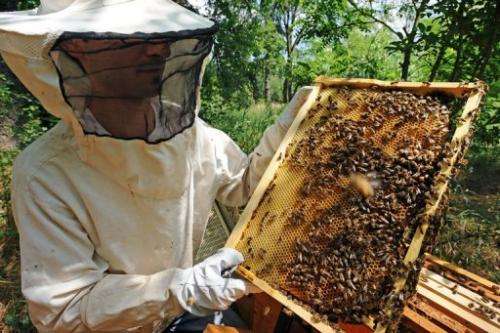Agrichemical giant Syngenta faults EU bee plans

Swiss-based agrichemical giant Syngenta on Friday urged Brussels to withdraw plans to restrict the use of neonicotinoid pesticides, saying blaming them for the death of bees was wrongheaded.
Syngenta said that a European Food Safety Authority (EFSA) report on the risks to bees posed by such pesticides was "fundamentally flawed".
The EFSA report formed the basis of plans by the European Commission—the Brussels-based executive of the 27-nation European Union—to rein in the use of the pesticides.
"The European Commission has been using this flawed EFSA report to justify proposed restrictions on this technology," Syngenta's chief operating officer, John Atkin, said in a statement.
Further review has now shown that the EFSA based its assessment on "unrealistic and excessive" seed planting rates, between two and four times higher than would be used in modern agriculture, Syngenta said.
Syngenta—the top player on the global agrichemical market—said that using normal sowing rates in the study would have told a different story.
It claimed that the EFSA would have concluded that the risk to bees is extremely low and that in reality neonicotinoid technology does not damage their health.
(c) 2013 AFP


















